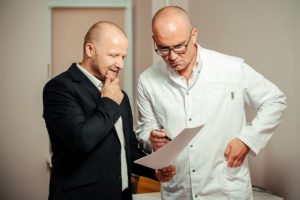
In today’s fast-paced world, where information is abundant and easily accessible, understanding basic medical knowledge has become more crucial than ever before. Whether it’s knowing how to respond to a medical emergency, understanding preventive healthcare measures, or making informed decisions about personal well-being, having a foundational understanding of medical concepts can significantly impact one’s life and the lives of those around them.
The Empowerment of Knowledge
Knowledge is power, and when it comes to health, this adage holds true. Basic medical knowledge empowers individuals to take control of their health and well-being. It enables them to recognise symptoms, understand risk factors, and make informed decisions about their lifestyle choices. With a grasp of fundamental medical concepts, individuals can better communicate with healthcare professionals, ask relevant questions, and actively participate in their own healthcare journey.
Prompt Response in Emergencies

When faced with emergencies, quick responses are paramount. Having undergone injury management courses, individuals possess the necessary skills to swiftly evaluate situations and provide immediate assistance. Whether it’s administering first aid, performing CPR, or addressing bleeding, this training equips individuals to act effectively. In addition, if you would have done a wound management course, then you would be able to provide proper care for injuries, reducing complications and facilitating faster recovery.
Preventive Healthcare and Early Intervention
Prevention is not only more effective but also less costly than treatment. Basic medical knowledge encompasses understanding preventive measures such as vaccinations, regular screenings, and healthy lifestyle practices. By recognising the importance of preventive healthcare and adopting proactive approaches to maintaining health, individuals can reduce the risk of developing chronic diseases and improve their overall quality of life. Early intervention, made possible through basic medical knowledge, can also help detect health issues in their initial stages when they are more manageable and less severe.
Navigating Healthcare Systems
Navigating the complex landscape of healthcare systems can be daunting, especially for those without a medical background. Basic medical knowledge provides individuals with a foundation to understand healthcare terminology, interpret medical reports, and comprehend treatment options. This understanding fosters better communication between patients and healthcare providers, facilitates shared decision-making, and promotes patient advocacy. Informed patients are better equipped to participate in discussions about their treatment plans, ask relevant questions, and actively engage in their healthcare journey.
Building Community Resilience
Communities thrive when individuals are equipped with essential skills and knowledge. Basic medical education not only benefits individuals but also strengthens community resilience. In times of crisis or disaster, such as natural disasters or pandemics, individuals with basic medical knowledge can provide valuable assistance to those in need. Whether it’s administering first aid, organising emergency response efforts, or disseminating accurate health information, these individuals play a crucial role in supporting community well-being and recovery.
Bridging Healthcare Disparities
Access to healthcare and health literacy are significant determinants of health outcomes. Unfortunately, many communities face disparities in access to healthcare and educational resources. Basic medical education can serve as a bridge to address these disparities by empowering individuals with the knowledge and skills necessary to take charge of their health. By making basic medical courses accessible to all, regardless of socioeconomic status or educational background, we can work towards reducing healthcare inequalities and promoting health equity.
All in all, the importance of basic medical knowledge cannot be overstated. It empowers individuals to take control of their health, respond effectively in emergencies, and navigate complex healthcare systems. It fosters community resilience, bridges healthcare disparities, and promotes health equity. As we strive towards a healthier and more informed society, investing in basic medical education for all emerges as a fundamental step towards achieving this goal. By equipping individuals with the tools they need to understand and manage their health, we can create a world where everyone has the opportunity to live a healthier, more fulfilling life.